Travel Advice: How to Deal with Travel or Motion Sickness
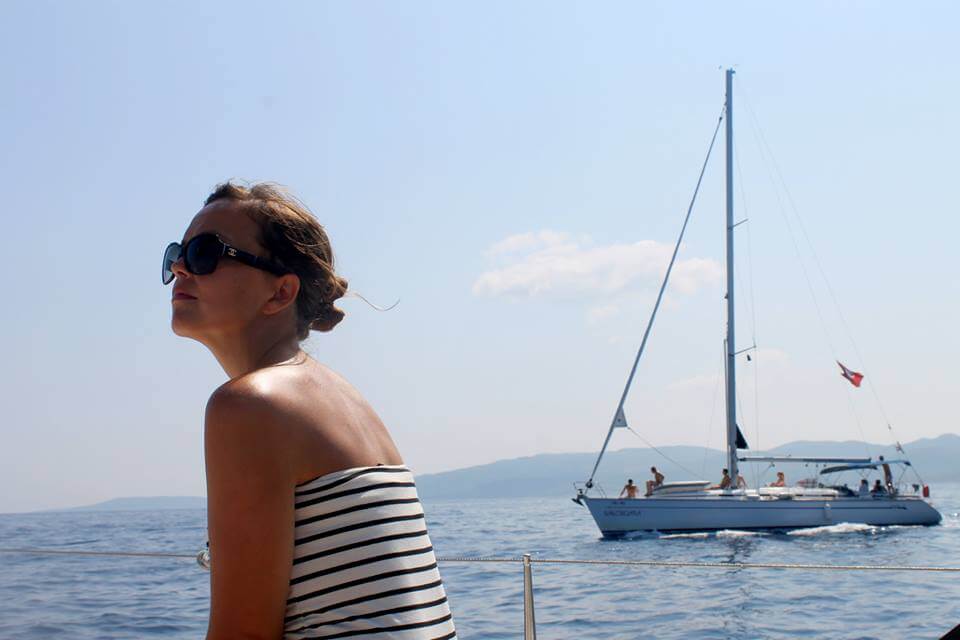
I've never met a traveller who loved all aspects of travel.
I have a friend who travels long-haul for nearly 6 months a year, but she hates flying. I know a guy who can't stand packing and so just buys stuff when he gets there. My boyfriend is incredibly impatient and will often utter the words "Never again!" when a flight has been delayed.
And then there are travellers like me who suffer travel sickness. This head-spinning, stomach-swimming nausea brought on by planes, trains and automobiles (and buses and boats too) can be debilitating, exhausting and has ruined many a journey for me. It nearly stopped me learning to scuba dive, it has robbed me of more hours of my life than I can count and it has prevented me from realising a number of travel dreams; I'll never go on a live-aboard diving trip and I don't think I'll ever be able to go on an epic week-long train trip like the Transsiberian Express. In recent years my motion sickness has also prompted panic attacks on planes and also anxiety before and after a trip (and if this is a problem you also experience, this post about panic attacks while travelling could help). And yet I still travel... Because I have learnt ways to cope with or even avoid my motion sickness.
Of course, this is a first world problem, but it's a problem I know many deal with. Because I have recently spent a week on a boat sailing on occasionally choppy seas in the Adriatic I thought it time to share some of my tips and advice for dealing with travel sickness following that week and after a lifetime of motion-related nausea. Because the good news is there are things you can do to improve how you feel.
How to beat travel or motion sickness
Needless to say, before I continue, I am NOT a doctor and this is NOT professional medical advice. A medical professional should be your first port of call if you are thinking about taking travel or motion sickness tablets.
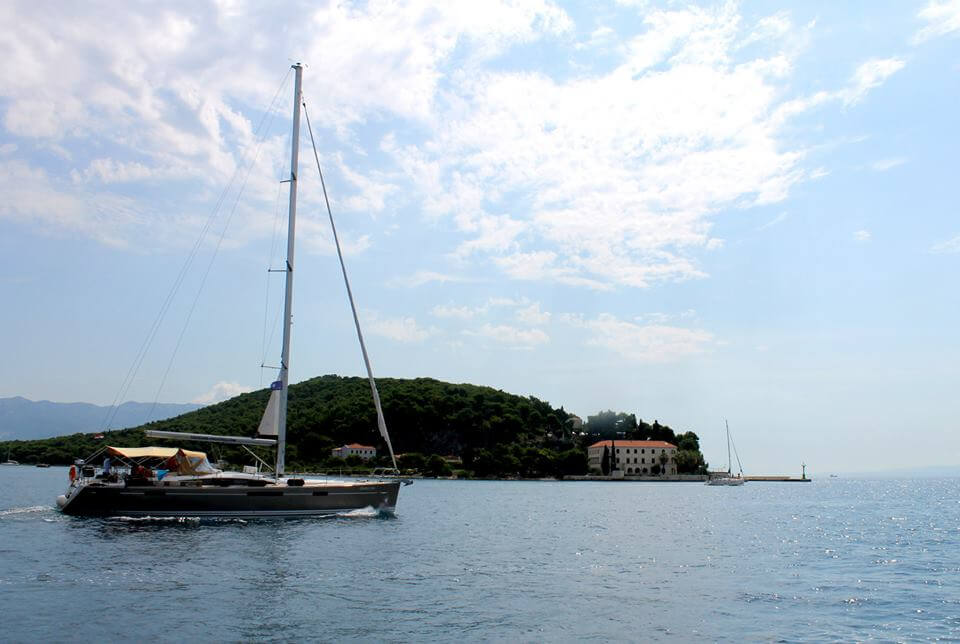
Take the medication
I was in Thailand when I was first told about Cinnarizine - or its brand name Stugeron - and it is the sole reason I was able to get back on a boat and complete two days of scuba diving to get my Open Water qualification. At the time I thought it was some prescription drug that loose Thai laws had allowed me to get for 50p but a quick email to my GP mother confirmed that it's an antihistamine and is used to treat motion sickness and inner ear infections (which are often the cause of that seasickness feeling when you're not actually moving as I experienced here). The best news is that it's available in most countries in the world as an over the counter medication.
I followed the dosage advice to the letter during my time sailing on Croatia and I would say my seasickness was only once worse than a 6 out of 10, 10 being the worst I've ever felt when I have actually thrown up. (An interesting note about throwing up from motion sickness, I have actually read that it is not common to throw up, and when you do, it is actually your body's way of telling you to stay still - i.e. to stop the motion that is upsetting it - rather than something actually upsetting your stomach which is the physiological reason you normally vomit).
There was one occasion in Croatia when I did feel close to a 9 or 10 and this was in the middle of the week, after we had spent 48+ hours at sea (we slept on the boat, often when it was anchored away from shore so constantly rocking) and we found out we were going to spend another night at sea in a position that not only rocked side to side but swung our boat around in a circle. Faced with having no horizon to focus on (see below) and falling asleep in a claustrophobic cabin that rocked in all directions, I found myself coming undone, panicking at the prospect of a sleepless, sick night. My fellow seasickness sufferer Alex was quick to sit with me, offer me water, stroke my back and then she asked...
"Have you taken another tablet yet today?" She was also taking Cinnarizine and we'd become good at reminding each other to top up.
I hadn't. Within half an hour we were all on dry land and I'd swallowed another tablet. The irony then was that as soon as I stood on dry land I realised my body still felt like it was moving, so much so there was a moment when I thought "Get me back on the boat!!".
I'm not sure how I got through that night. Two large beers and a pizza on shore probably helped, as did the final pill I took an hour before bed. I also slept with them and the number of a water taxi under my pillow.
A few notes about these antihistamines (Dimenhydrinate is another one that has been recommended to me and I recently took it when experiencing nausea while pregnant as Cinnarizine is not to be taken while pregnant) they do make you feel drowsy and a little "slow". You definitely shouldn't take them if you have to drive, and you should avoid drinking alcohol while on them.
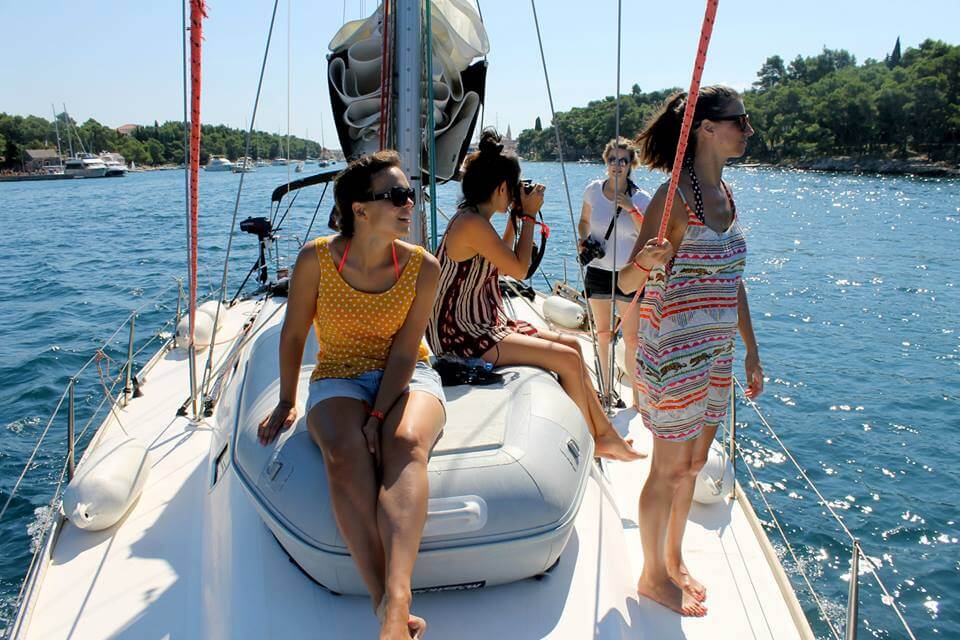
Look at the horizon
There is a reason looking at the horizon works. You feel seasick because your body's balance is upset by the motion or in some scenarios, by the perceived motion it is experiencing. When you look out onto the horizon and see something that isn't moving (at least not as much) your body has a reference point and this helps it realise you're not as unbalanced as you think you are. Of all the girls I was sailing with last week, even those who never get seasickness started to feel bad when they went inside the cabin while the boat was moving.
It may sound restrictive, but in this age of constant digital feeds, there was something quite special about just staring at land on the horizon for a whole week, as I mentioned in this post.
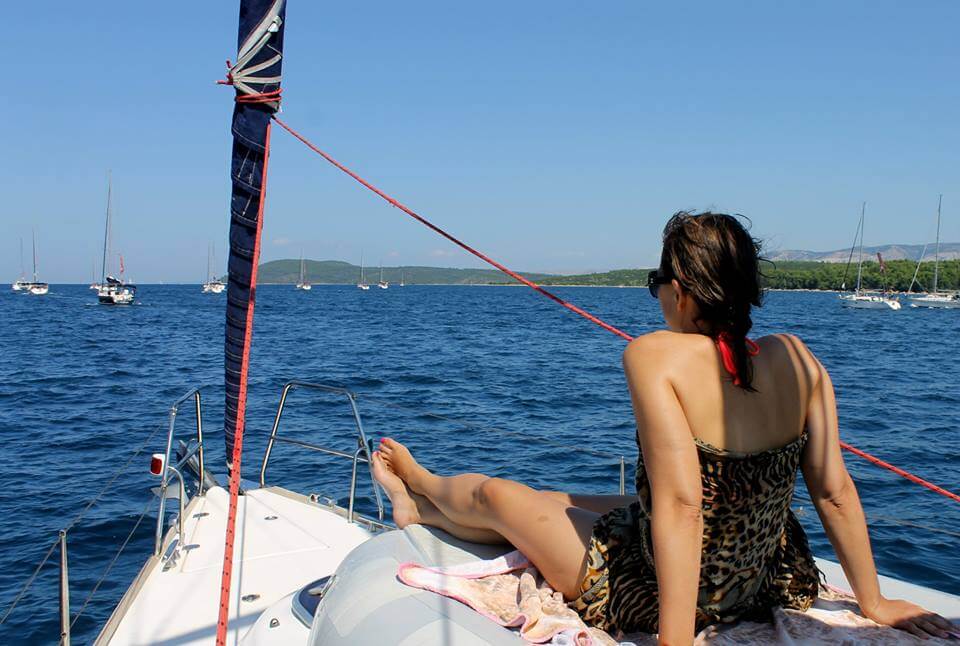
Don't sweat it. It is what it is.
As with many things in life, the prospect of travel sickness can often be worse than the reality. Prior to my week on a boat in Croatia, I was so busy finishing work and my book that I didn't have much time to think about the trip, let alone seasickness. If I had had more time to think about it in the weeks running up to the week sailing, I would have panicked and imagined a series of scenarios that were much worse than the reality was.
In fact, I only went to the pharmacy to get a week's worth of Cinnarizine the day before I left. In some ways this was the best thing I could have done. I'd already had my doubts about whether the trip was worth doing back in March when us Travelettes got the invitation but I wanted to face my fear head on. Once I was committed, I had to follow through.
One of the reasons I hate motion sickness so much is because it makes me feel out of control of my own body. My week sailing in Croatia taught me that I do have some control over how I deal with it and this in itself has helped me tackle it.
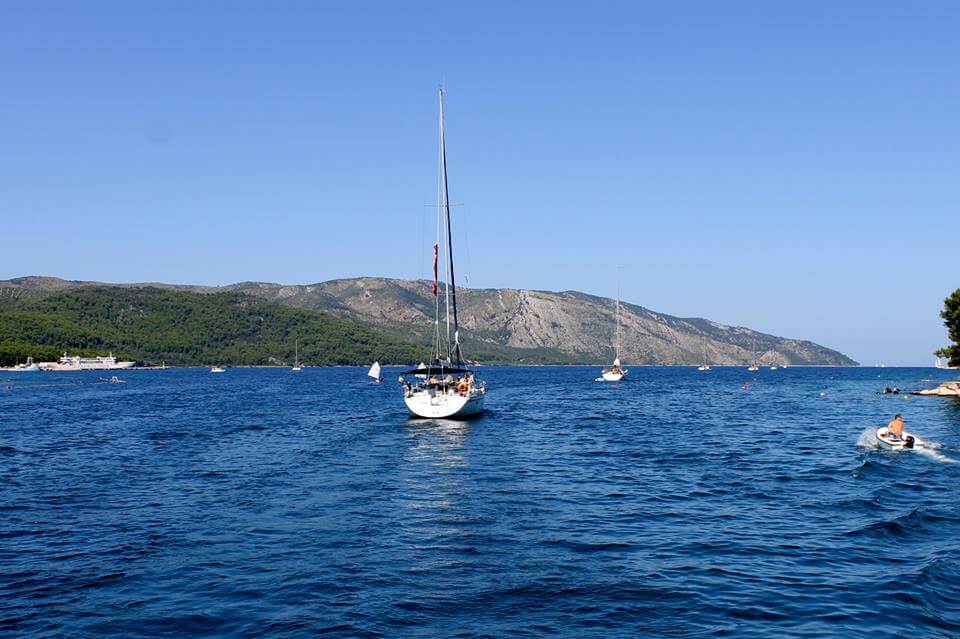
Tell your travel companions.
I've learned that seasickness is best dealt with alone and in silence. Even simple tasks like focusing on a conversation can make me feel worse, so when I'm feeling nausea from travel sickness I'm a very quiet, anti-social and useless person. Do yourself and your travel companions a favour and tell them in advance that you're not ignoring them, you're just trying not to vomit on them.
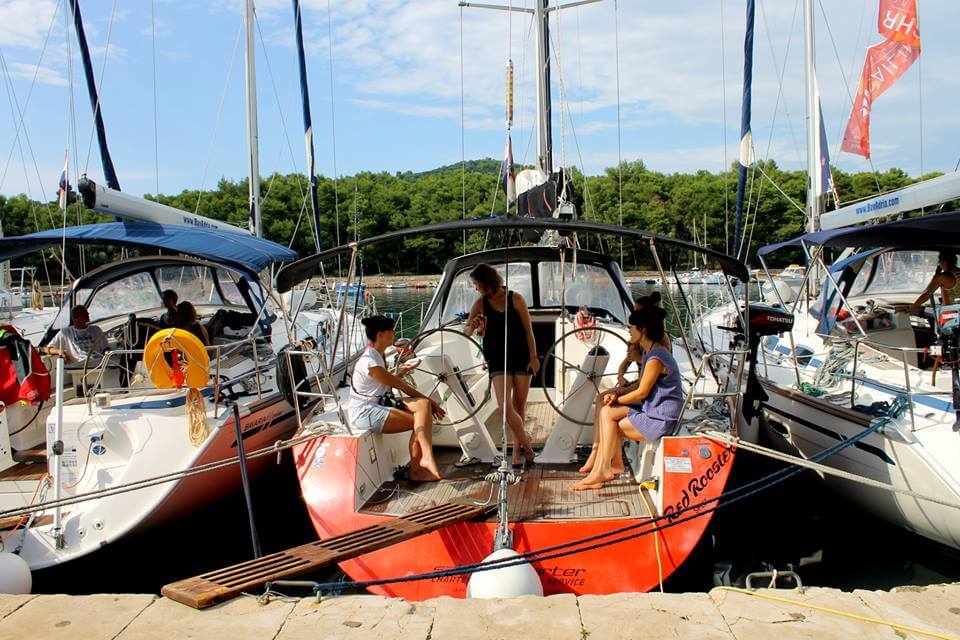
Do what you gotta do. (Do nothing.)
As I've mentioned, even the smallest activity can make me feel worse, so I try to do as little as possible when actually travelling. In Croatia this made me a pretty useless sailor and in a train or car I'm no good at reading anything or checking a map for directions. (I try to always drive in a car) and I feel worse when I sit backwards or sideways. My boyfriend, friends and family are all used to me suddenly moving seats, going quiet or turning a strange shade of green and they're happy to ignore me because that's all they can do!
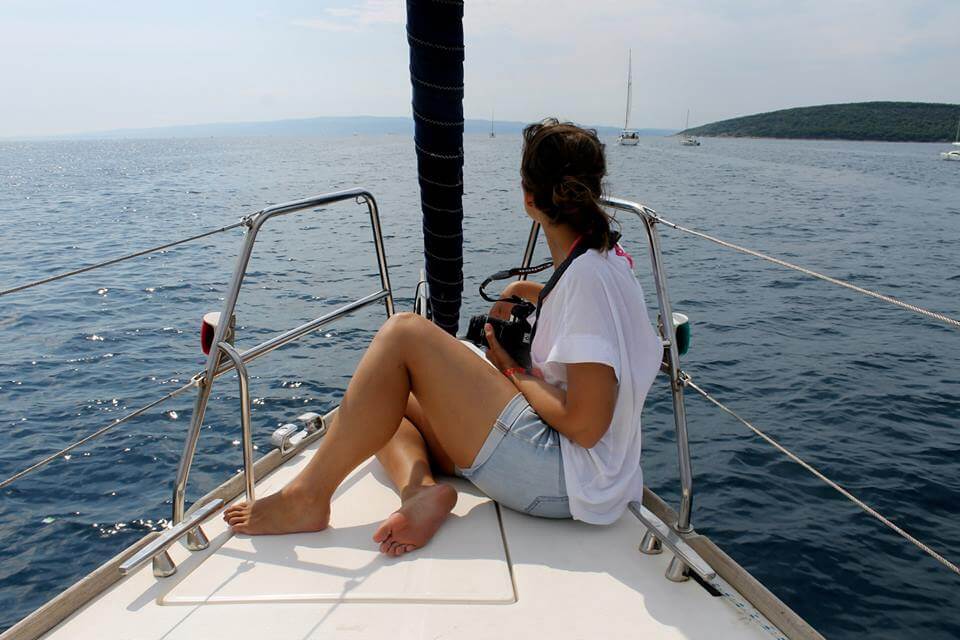
Don't make it harder for yourself.
Write down that address you need before you get in a taxi. Leave your phone in your handbag. Put your headphones in so people think you're listening to music and won't strike up a conversation. And don't even think about reading a book or watching a movie.
Just sit, breathe and if you have one, stare at the horizon.
Keep your blood sugar up.
My fellow Travelette Marie also pointed out that one of the reasons I may have felt worse on that bad day in Croatia was because all my staying up on deck and concentrating on the horizon had meant I'd missed a meal so my blood sugar was low and I generally felt a bit pants. After that we always made sure we had some snacks on hand during longer sailing days.
Sit up straight, open a window, breathe deep. Tell yourself that "this too shall pass".
These are things that help me when all the above fail.
I think I'm still talking about travel sickness...
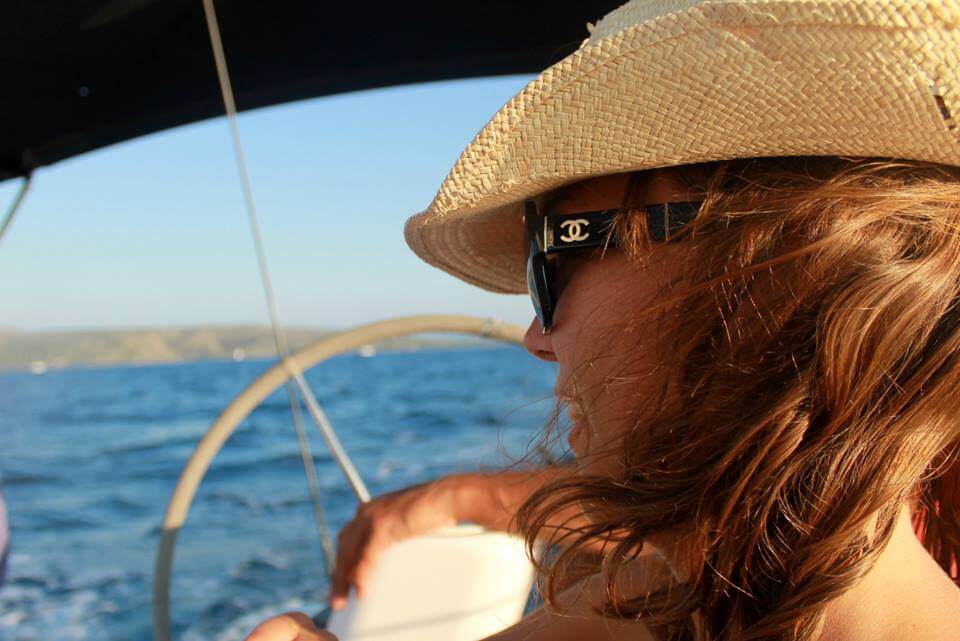
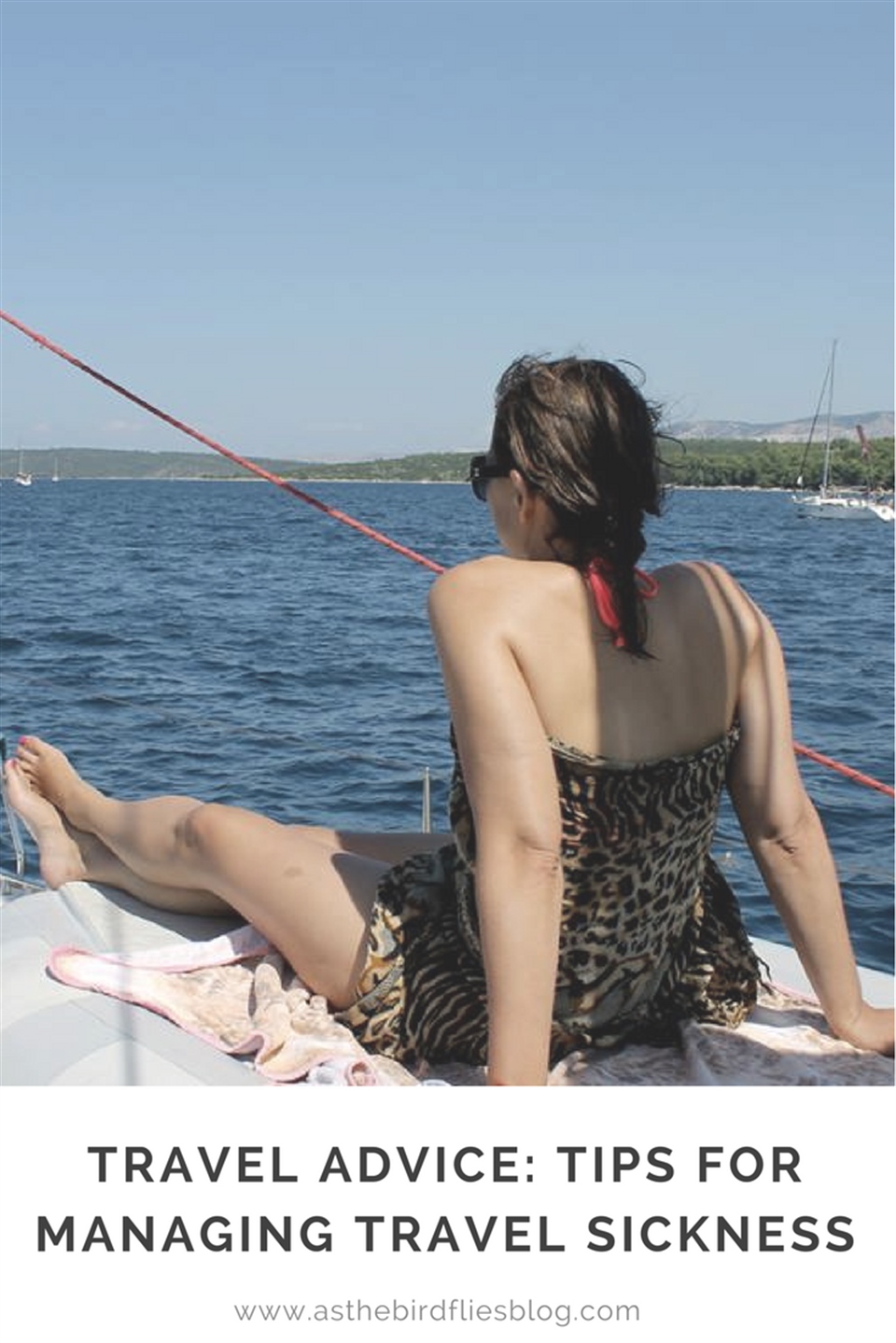
All photos by Alex Saint.
I was sailing in Croatia with Sailing,hr and Travelettes. Again, I'm not a medical professional, this is just what works for me as a lifelong sufferer of travel sickness and seasickness who just spent a week on a boat. Yeah!!!
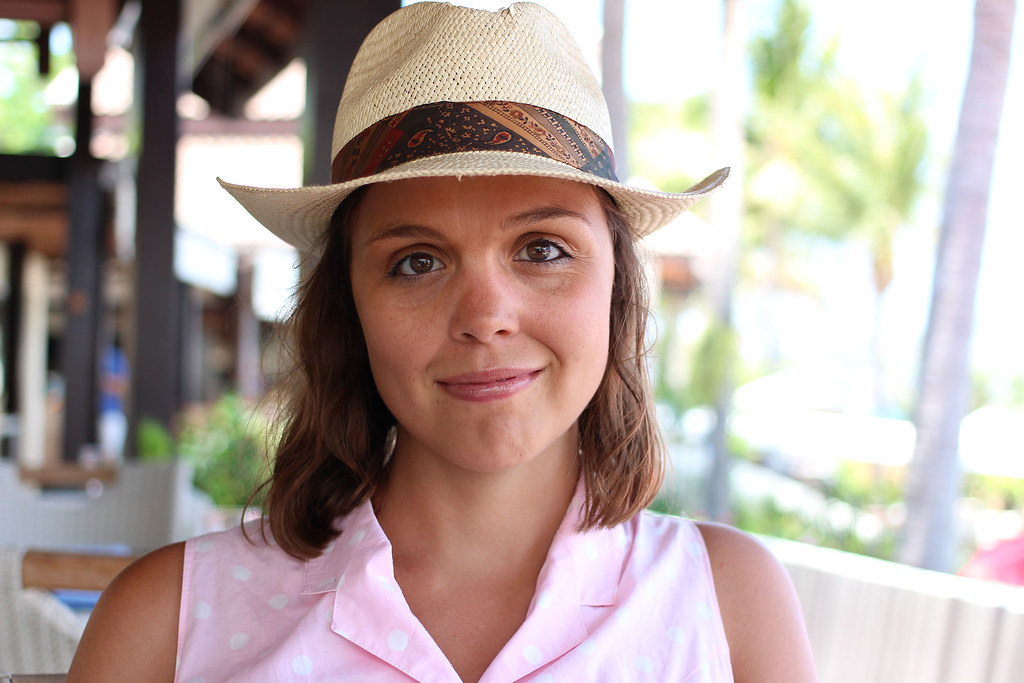
Frances M. Thompson
Find Frankie on Facebook, Twitter, Instagram, Pinterest, and Google+.
 Family Travel: How to Travel with Kids - My Golden Rules
Family Travel: How to Travel with Kids - My Golden Rules_x300.jpg?v=1) Amsterdam Travel: Best Luxury Hotels in Amsterdam - Reviewed!
Amsterdam Travel: Best Luxury Hotels in Amsterdam - Reviewed! Solo Luxury Travel: Best Caribbean Islands for Solo Travellers
Solo Luxury Travel: Best Caribbean Islands for Solo Travellers New Zealand Travel: 51 Interesting Facts About New Zealand Aotearoa
New Zealand Travel: 51 Interesting Facts About New Zealand Aotearoa Amsterdam Travel: Accessible Travel Guide for Amsterdam
Amsterdam Travel: Accessible Travel Guide for Amsterdam About the Blog & Frankie
About the Blog & Frankie Welcome to My Amsterdam Travel Blog!
Welcome to My Amsterdam Travel Blog! Welcome to My Luxury Family Travel Blog!
Welcome to My Luxury Family Travel Blog! Welcome to My Writing Blog!
Welcome to My Writing Blog! Lover Mother Other: Poems - Out Now!
Lover Mother Other: Poems - Out Now! I Write Stories That Move You
I Write Stories That Move You Order WriteNOW Cards - Affirmation Cards for Writers
Order WriteNOW Cards - Affirmation Cards for Writers Work With Me
Work With Me